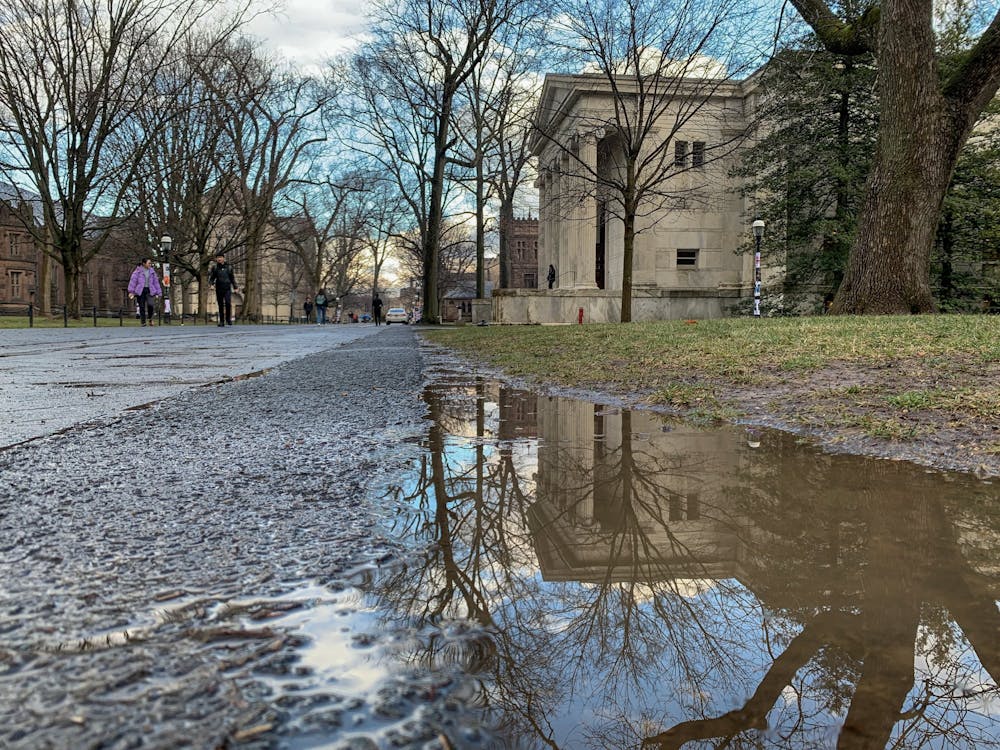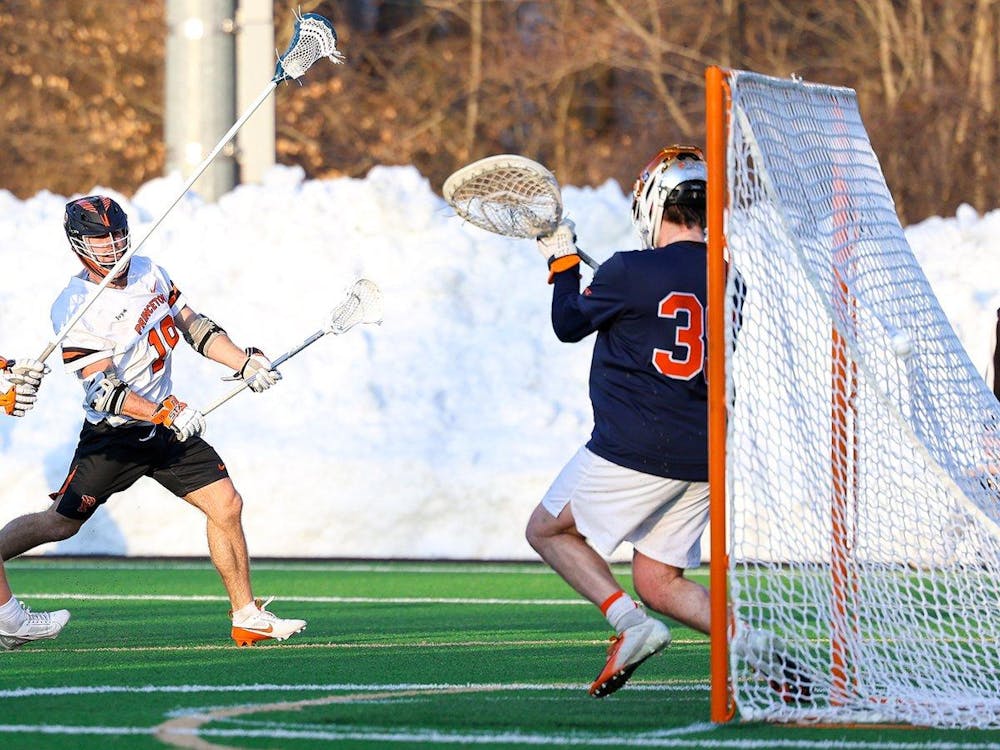More than 130 members of the American Whig-Cliosophic Society (Whig-Clio) voted for officers last Friday, a major increase from previous years as the club, once the University’s largest, continues to rebuild from the pandemic. In December 2022, only 58 people voted. The previous year, fewer than 25 people cast ballots.
Elections were also more competitive than previous years, according to Whig-Clio President-elect Daniel Shaw ’25, with every position being contested.
"This year, every single race ended up being a contested race. I think it is a testament to the character of those in the Society that, no matter the outcome, we can all come together afterward to unite for the betterment of the Society," Shaw wrote in an email to The Daily Princetonian.
According to former Whig-Clio Secretary Santhosh Nadarajah ’25, the presidential race in particular was contested for the first time since December 2020.
Shaw ran against Nadarajah in the presidential race and won. Emily Paulin ’25 was elected as vice president, Kyler Zhou ’27 was elected as director of programs, Khoa Sands ’26 was elected president of the senate, Samuel Kligman ’26 was elected as secretary, Jaden Stewart ’26 was elected as Clio chair, and Sophia Burnston ’27 was elected as Whig chair.
Zhou is a News contributor for the ‘Prince.’
Shaw is the only winning candidate not affiliated with either the left-leaning Whig Party or the right-leaning Clio Party. 53 of Whig-Clio’s registered voters (39.8 percent) are unaffiliated, according to their voter registration database. Sands and Stewart are party members of Clio (25 voters, or 18.8 percent), while Zhou, Kligman, Paulin, and Burnston are Whig members (55 members, or 41.4 percent).
Shaw and Paulin, president and VP winners, ran on a ticket, with their campaign focused on transforming Whig-Clio “from a hall to a home” for all Princetonians. Their platform consisted of six main “pillars,” addressing such topics as the interaction between Whig and Clio parties, rebuilding connections with other universities’ literary societies (and a renewed emphasis on trying to expand its own literary activities, including book clubs, author talks, and poetry discussions), and a plan for galvanizing votes and interest in the 2024 U.S. presidential election.

Whig-Clio was once a center of campus’s social scene as well as its debate scene. The club experienced a slow decline throughout the 1990s and 2000s, culminating with the disruption of the pandemic.
The 2023 Whig-Clio election was noticeably distinct from those in previous years. Nadarajah cited the “meticulously planned social media operation” that Shaw employed to garner support, describing it as “a first in Whig-Clio history.”
Their joint-campaign Instagram account features six graphics showing endorsements from a variety of students involved in campus politics. Endorsers included Kligman, outgoing USG President Stephen Daniels ’24, and outgoing President of the International Relations Council within Whig-Clio Vincent Jiang ’25.
In his 350-word endorsement, Kligman wrote, “In his position as President of the Senate, Daniel’s maturity is exhibited by his consistent Senate Debate programming.”

Each of the six endorsements were posted with professional graphics in multi-slide posts that featured extensive written endorsements. The account has 64 followers and each post between nine and 28 likes.
As Whig-Clio has expanded, Nadarajah believes that the dynamics of the club have shifted in ways that manifested during this year’s election cycle. Nadarajah discussed the factions within Whig-Clio, speculating on the marked decrease of Princeton Debate Panel (PDP) members in Whig-Clio since December 2021. “Whig-Clio has seen a massive re-alignment in recent years as a consequence of its revival following the COVID-era,” he wrote to the ‘Prince’ in an email.
Shaw and Nadarajah, head-to-head in the presidential election, were “very close friends” before, according to Nadarajah. He said that the election process “tore apart [their] friend group,” placing great stress on their relationship. However, he added that once the elections were over, they quickly mended their friendship and “held a joint Victory Celebration and Retirement Party” along with Paulin.
Other contested included the race for Whig Chair, which Burnston won over Quentin Colón Roosevelt ’27, who was simultaneously running for USG Sustainability Chair and a position in College Democrats. Stewart, President of the College Republicans, won the election for Clio Chair against Osamede Ogbomo ’25.
Several candidates noted the camaraderie of Whig-Clio as one of its greatest strengths. Indeed, rather than create strain on the club, the surge in candidates “speaks to the revival of the Society as a whole,” Shaw said.
Kligman, the secretary-elect, added, “The beauty of Whig-Clio is that we can have sharp disagreements, yet come together at the end of the day and share a meal.”
Ethan Caldwell is a News contributor for the ‘Prince.’
Please send any corrections to corrections[at]dailyprincetonian.com
Correction: A previous version of this article misattributed a quote from Nadarajah and said that the presidential race was uncontested. The 'Prince' regrets these errors.








